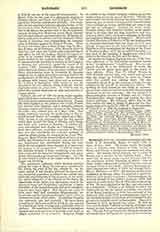

Kavanagh, EDWARD, American statesman and diplomat, b. at Newcastle, Maine, April 27, 1795; d. there, January 21, 1844. His father, James Kavanagh, came to America from Ireland in 1780, settled in Maine, and became a prosperous merchant and ship owner. His mother, Sarah Jackson, was a native of Boston and a convert to the Catholic Faith. Their home was for many years a center of hospitality for the missionary priests laboring in Maine. One of these, Father (afterwards Cardinal) Cheverus, was an intimate friend of the family. Edward Kavanagh entered Georgetown College in 1810, and changed to St. Mary’s, Baltimore, in 1812. His classical studies were completed in Europe, where he acquired a useful familiarity with modern languages. Returning home, he devoted himself to his father’s business, which had suffered severely in the War of 1812, and to the study of law. He was admitted to the Bar, and won esteem as a counselor. Failing in an attempt to enter the diplomatic service, he turned to politics, was elected to the Maine Legislature in 1826, was secretary of the Senate in 1830, and in 1831, as commissioner, explored the northern frontier of the State and presented to the governor a valuable report on the subject. Elected to Congress in 1831, he served two terms. In 1838 he was named charge d’affaires at Lisbon, Portugal, and ranked as chief American representative in that country. Though Portugal was in the throes of revolution and bankruptcy during the five years of his residence, Mr. Kavanagh settled all claims pending at his arrival, and negotiated a favorable commercial and navigation treaty. He resigned in 1841, and returning to Maine was elected to the State senate as its presiding officer. The boundary controversy was at fever heat, and he was chosen to be one of four commissioners to negotiate at Washington the preliminaries for the Webster-Ashburton Treaty. On the resignation of Governor Fairfield, Mr. Kavanagh succeeded to the office of governor which he held nine months. He suffered much from rheumatism during the latter years of his life. He died sustained by the sacraments of the Church of which he was a faithful and uncompromising member all his life. Though not eloquent, he was a convincing speaker and an accomplished scholar. Longfellow’s story, “Kavanagh”, is not founded on the Maine statesman’s career. He is buried in the shadow of St. Patrick’s church, Newcastle (Damariscotta Mills).
CHARLES W. COLLINS

